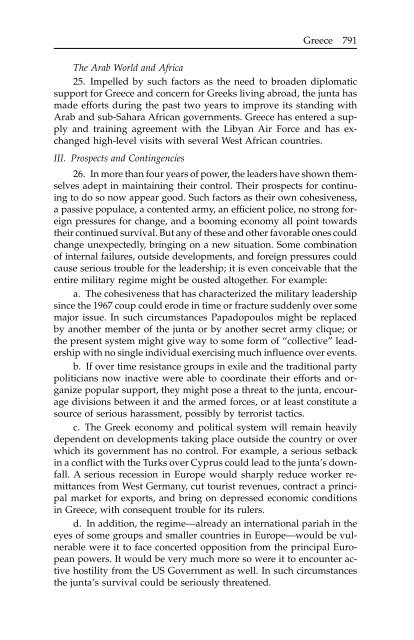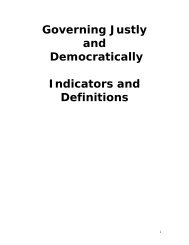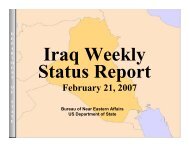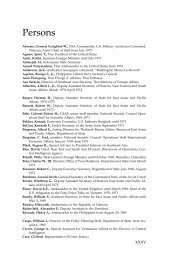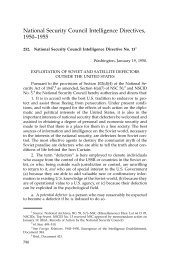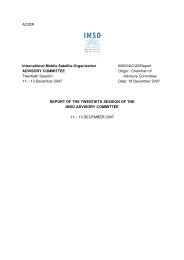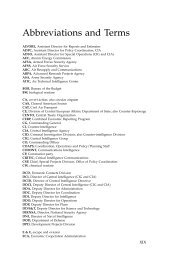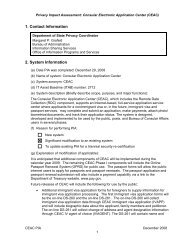Greece - US Department of State
Greece - US Department of State
Greece - US Department of State
Create successful ePaper yourself
Turn your PDF publications into a flip-book with our unique Google optimized e-Paper software.
<strong>Greece</strong> 791<br />
The Arab World and Africa<br />
25. Impelled by such factors as the need to broaden diplomatic<br />
support for <strong>Greece</strong> and concern for Greeks living abroad, the junta has<br />
made efforts during the past two years to improve its standing with<br />
Arab and sub-Sahara African governments. <strong>Greece</strong> has entered a supply<br />
and training agreement with the Libyan Air Force and has exchanged<br />
high-level visits with several West African countries.<br />
III. Prospects and Contingencies<br />
26. In more than four years <strong>of</strong> power, the leaders have shown themselves<br />
adept in maintaining their control. Their prospects for continuing<br />
to do so now appear good. Such factors as their own cohesiveness,<br />
a passive populace, a contented army, an efficient police, no strong foreign<br />
pressures for change, and a booming economy all point towards<br />
their continued survival. But any <strong>of</strong> these and other favorable ones could<br />
change unexpectedly, bringing on a new situation. Some combination<br />
<strong>of</strong> internal failures, outside developments, and foreign pressures could<br />
cause serious trouble for the leadership; it is even conceivable that the<br />
entire military regime might be ousted altogether. For example:<br />
a. The cohesiveness that has characterized the military leadership<br />
since the 1967 coup could erode in time or fracture suddenly over some<br />
major issue. In such circumstances Papadopoulos might be replaced<br />
by another member <strong>of</strong> the junta or by another secret army clique; or<br />
the present system might give way to some form <strong>of</strong> “collective” leadership<br />
with no single individual exercising much influence over events.<br />
b. If over time resistance groups in exile and the traditional party<br />
politicians now inactive were able to coordinate their efforts and organize<br />
popular support, they might pose a threat to the junta, encourage<br />
divisions between it and the armed forces, or at least constitute a<br />
source <strong>of</strong> serious harassment, possibly by terrorist tactics.<br />
c. The Greek economy and political system will remain heavily<br />
dependent on developments taking place outside the country or over<br />
which its government has no control. For example, a serious setback<br />
in a conflict with the Turks over Cyprus could lead to the junta’s downfall.<br />
A serious recession in Europe would sharply reduce worker remittances<br />
from West Germany, cut tourist revenues, contract a principal<br />
market for exports, and bring on depressed economic conditions<br />
in <strong>Greece</strong>, with consequent trouble for its rulers.<br />
d. In addition, the regime—already an international pariah in the<br />
eyes <strong>of</strong> some groups and smaller countries in Europe—would be vulnerable<br />
were it to face concerted opposition from the principal European<br />
powers. It would be very much more so were it to encounter active<br />
hostility from the <strong>US</strong> Government as well. In such circumstances<br />
the junta’s survival could be seriously threatened.


